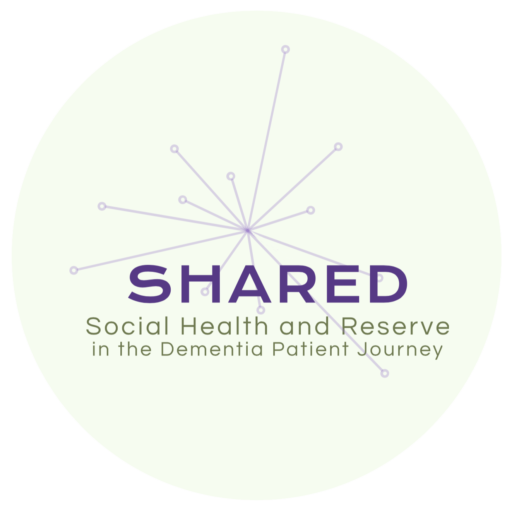Social Health in the
preclinical phase of dementia
Background
The link between social health and dementia is complex. It is important to investigate temporal associations between social health and cognitive trajectories before the onset of dementia to provide insight into the relationships between them.
The underlying hypothesis for this work is that social health is prospectively associated with better cognitive trajectories, and that at least some of these associations are explained through improved brain reserve. Social health may operate through its impact on neurons and brain connectivity (i.e. biological pathways underlying brain reserve) or alternatively affect the capacity of the brain to function properly or engage meaningfully with the social environment, independent from structural brain properties (i.e. pathways underlying cognitive reserve and involving lifestyle factors). Assessing the relative importance of these pathways is key to understanding the pathophysiological origins of dementia.
Our approach is to consider the mediating role of both biological correlates (i.e. brain reserve) and functional correlates (e.g. lifestyle factors) on the pathway between social health and dementia diagnosis.
Aims
This work will focus on the early, pre-clinical phase of dementia and will study:
1) how social health affects markers of cognitive decline in persons without dementia, and
2) how brain and cognitive reserve modulate the association of social health with cognitive health in persons without dementia.
Tasks
1. Studying the link between social health and cognitive health in persons without dementia.
2. Understand the biological pathways linked to brain reserve, mediating the link between social health and cognitive outcomes.
3. Explore functional and lifestyle-related pathways linked to cognitive reserve, mediating social health and cognitive outcomes.











